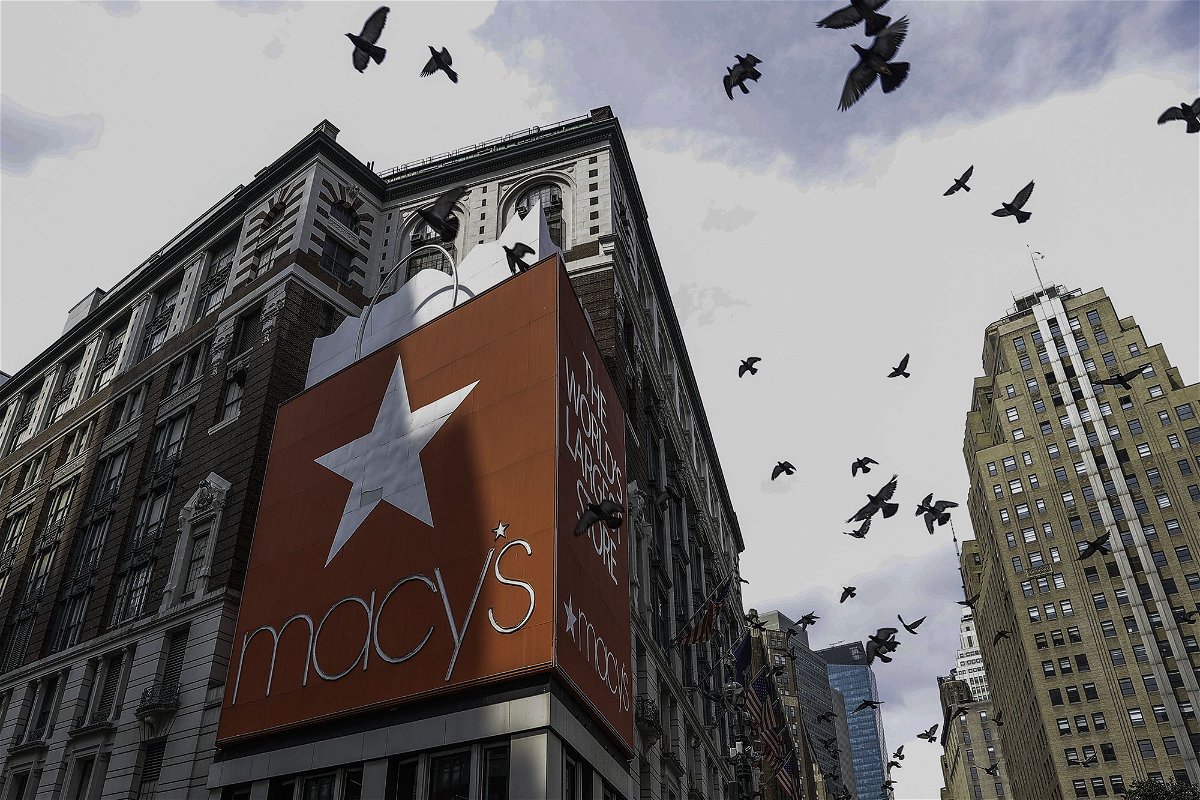Macy’s sounds the alarm on credit card delinquencies

Macy’s is warning of a spike in customers who are failing to make credit card payments. Pictured is Macy's Herald Square store in New York City.
By Matt Egan, CNN
New York (CNN) — Macy’s is warning of a spike in customers who are failing to make credit card payments, adding to the evidence of mounting financial stress on consumers.
The iconic department store had anticipated delinquencies would climb following a post-Covid lull. But Macy’s management has been caught off guard by the magnitude of the uptick.
“The speed at which the increase occurred for us and the broader credit card industry…was faster than planned,” Adrian Mitchell, Macy’s chief operating officer and chief financial officer, told analysts during an earnings call on Tuesday, adding that this problem “accelerated” in June and July.
This situation is hurting Macy’s business, driving down credit card revenue by 36% year over year and contributing to a quarterly loss, he said. Citing worsening consumer leverage metrics, Macy’s is bracing for a further increase in “bad debt” in its credit card portfolio.
Macy’s blamed the jump in delinquencies on broader financial pressure facing consumers and mounting debt levels.
“I think the credit card revenue is an indication of some of the pressures that we’re actually seeing on the consumer,” Mitchell said. “This is about credit card balances, this is about student loans which we know is going to come into focus in the next month or two, auto loans, mortgages.”
Macy’s said it is working with its credit card partner, Citibank, to target “higher risk segments to surgically reduce exposure.” Macy’s shares plunged 14% as the company reiterated its “cautious” stance on consumers.
Resilient consumer spending has helped the US economy avoid a long-rumored recession, so far at least. Unemployment remains historically low and inflation has cooled, allowing consumer confidence to rebound.
Still, there has been a series of developments that point to rising financial stress for at least some Americans.
Consumer credit card debt topped $1 trillion during the second quarter for the first time on record, according to the New York Federal Reserve.
More concerningly, new credit card and auto loan delinquencies have now surpassed pre-Covid levels, according to Moody’s Investors Service.
This is especially a problem for smaller banks. Credit card and auto loan delinquencies at banks not in the top 100 in assets have soared to record highs, surpassing both the Covid spike and the one during the Great Recession, according to a Wells Fargo report released on Tuesday.
Foot Locker shares plummeted by more than 30% to 13-year lows on Wednesday after the company warned of “consumer softness,” slashed its outlook and paused its dividend.
The-CNN-Wire
™ & © 2023 Cable News Network, Inc., a Warner Bros. Discovery Company. All rights reserved.